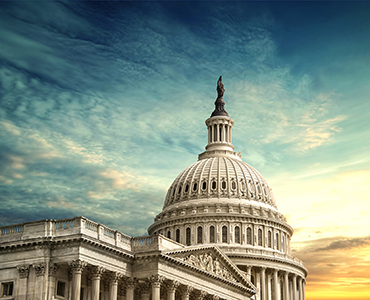Billionaires Elon Musk and Mark Cuban, free-market think tanks, constitutional scholars, and others on April 22, 2022, urged the Supreme Court to take up a petition challenging a nearly two-decade-old SEC gag order against a former Xerox Corp. executive. The cluster of amicus filings casts the commission’s long-standing policy as a violation of the Constitution’s First Amendment protections, among other criticisms.
Romeril petitioned the Supreme Court in March, criticizing the SEC’s policy, rooted in its “Gag Rule,” as a “sweeping restriction on freedom of speech” implemented without Congressional authorization. He is represented by the New Civil Liberties Alliance.
Under the so-called “Gag Rule” of 1972, the SEC has adopted a policy that in civil lawsuits or administrative proceedings “it is important to avoid creating, or permitting to be created, an impression that a decree is being entered or a sanction imposed, when the conduct alleged did not, in fact, occur.”
“Accordingly, it hereby announces its policy not to permit a defendant or respondent to consent to a judgment or order that imposes a sanction while denying the allegations in the complaint or order for proceedings,” the regulation states. “In this regard, the Commission believes that a refusal to admit the allegations is equivalent to a denial, unless the defendant or respondent states that he neither admits nor denies the allegations.”
Musk, CEO of Tesla Inc. and SpaceX, and Cuban, owner of the Dallas Mavericks, are two of the SEC’s most high-profile critics. They were joined by hedge funds managers Phillip Goldstein and Nelson Obus, and the Investor Choice Advocates Network in filing the amicus brief.
In that brief, they argued there is “no compelling public policy reason to enforce SEC ‘gag orders’ against defendants who settle with the SEC.”
“In fact, the opposite is true,” they wrote. “In the statutes and regulations the SEC is responsible for enforcing (and by its own actions, public statements, and admissions), the SEC requires full transparency and disclosure for the benefit of participants in securities markets. There is no compelling justification for the SEC to break from this responsibility and single out for concealment and opacity information from defendants who settle with the SEC. To the contrary, preventing these settling defendants from speaking freely deprives the securities markets of potentially material information and so may harm the very market participants for whose benefit the SEC pursues transparency and disclosure.”
Also filing separate amicus briefs supporting the petition were a group of constitutional law and first amendment scholars; the Pelican Institute for Public Policy; the Competitive Enterprise Institute, Cato Institute, Institute for Free Speech, and Institute for Justice; the Due Process Institute; the Hamilton Lincoln Law Institute; and the Thomas More Society.
In 2003, Romeril and five other ex-Xerox executives agreed to pay more than $22 million in penalties, interest, and disgorgement to settle fraud charges related to the use of GAAP-violating accounting devices that accelerated the company’s revenue and pre-tax earnings, which was not disclosed to investors. As part of the settlement, the defendants did not admit or deny the allegations.
Romeril agreed in a consent agreement not to make public statements denying the SEC allegations, but in 2019 asked the U.S. District Court for the Southern District of New York to void that judgment, indicating he wanted to “speak, write, or publish” about his case.
The District Court rejected the motion as untimely and failing to “allege a jurisdictional defect or violation of due process that would permit relief” under the Federal Rules of Civil Procedure. In late September 2021, a three-judge panel of the Second Circuit affirmed that district court decision.
This article originally appeared in the April 26, 2022 edition of Accounting & Compliance Alert, available on Checkpoint.
Get all the latest tax, accounting, audit, and corporate finance news with Checkpoint Edge. Sign up for a free 7-day trial today.


